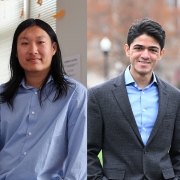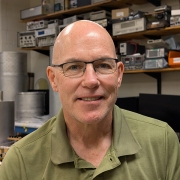New Method of Stabilizing Peptides Opens the Door to Better Therapeutic and Imaging Techniques
For many people with advanced Type 2 diabetes, taking insulin is a regular part of their routine, helping them control their blood sugar by signaling the metabolism of glucose. But recently, researchers have been investigating GLP-1, a peptide that gets activated when people eat, triggering insulin through a more natural pathway.
“Proteins do a lot of the work in cells,” says E. James Petersson, an associate professor of chemistry in the University of Pennsylvania’s School of Arts and Sciences. “Peptides are shorter, and they're not really functional as machines in the same way that proteins are. But what they can do is signal molecules. One cell will secrete a peptide, and it will travel through the bloodstream and activate another type of cell.”
The problem with giving patients GLP-1 to trigger insulin production is that the peptide degrades in about two minutes due to natural enzymes in the body that break it apart, a process called proteolysis. In a paper published in the Journal of the American Chemical Society and highlighted in Nature, Penn researchers used in-vitro experiments and in-vivo studies in rats to demonstrate that, by modifying the peptide backbones, they can block interactions with the enzymes that degrade peptides and can produce a stabilized, longer-lasting version of the drug.
Click here to read the full story.





